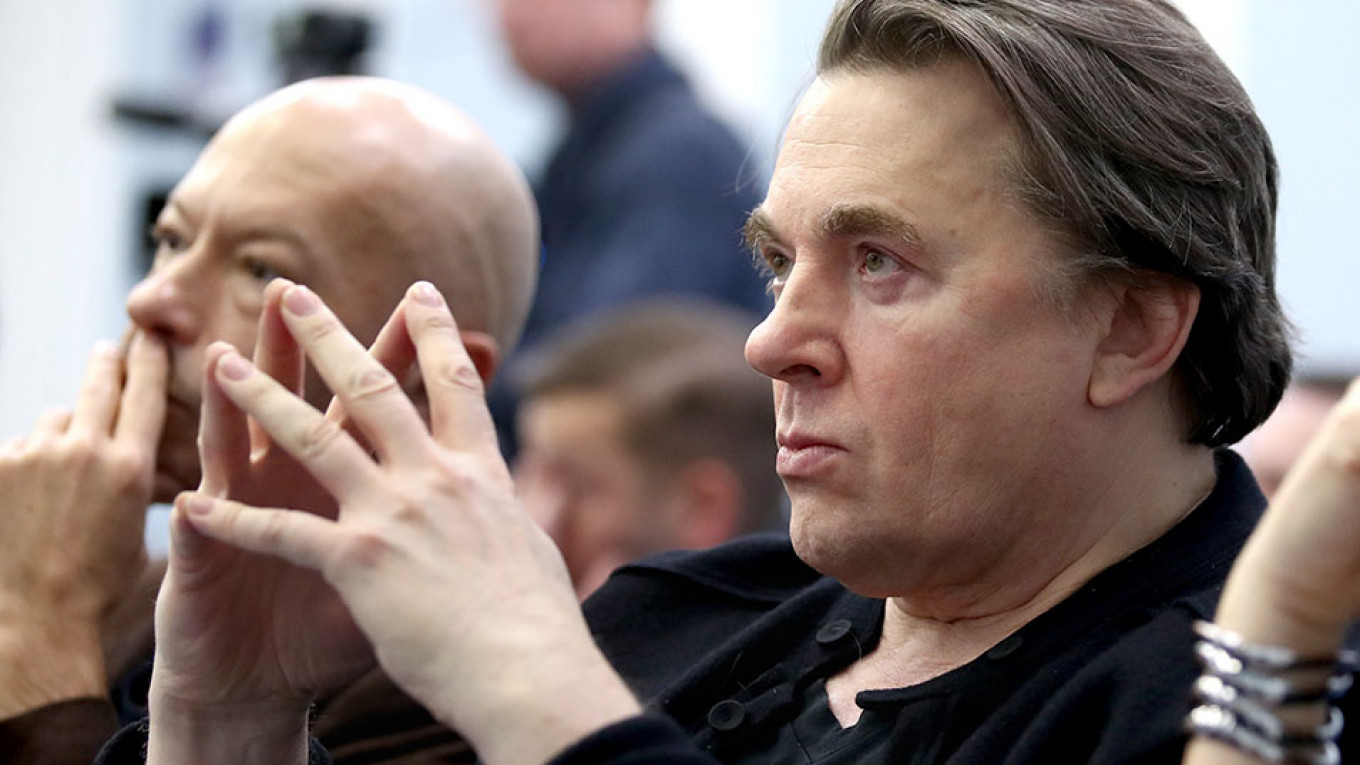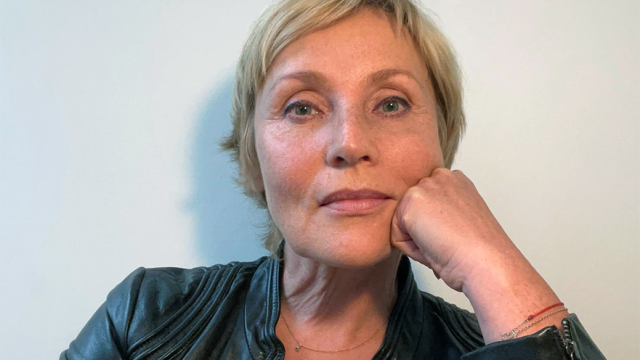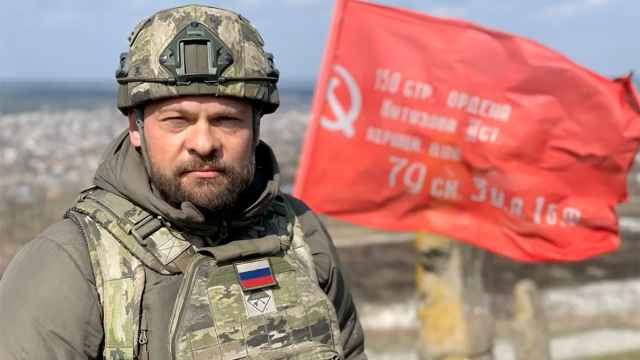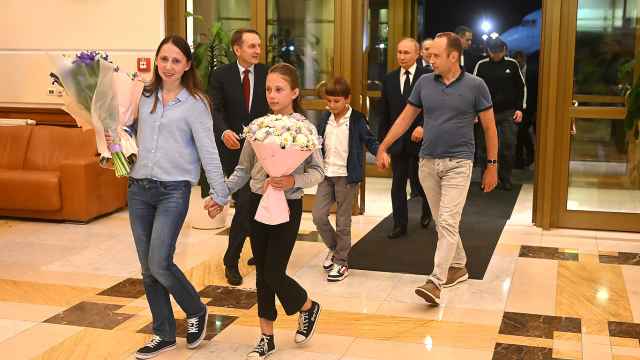The head of Russia’s largest television channel has admitted that airing footage it erroneously claimed to prove Ukraine’s role in the downing of MH17 was a “mistake,” according to a book excerpt published by The New Yorker.
Malaysia Airlines Flight MH17 was shot down over territory controlled by Russia-backed separatists in eastern Ukraine, killing 298 people flying from Amsterdam to Kuala Lumpur in July 2014. That November, Russia’s state-run Channel One broadcaster aired a “sensational” image debunked as fake that claimed to show a Ukrainian fighter jet shooting down the passenger aircraft.
“Yes, we’re human, we made a mistake, but not on purpose,” Konstantin Ernst, Channel One’s director general, told The New Yorker’s Joshua Yaffa for his upcoming book, “Between Two Fires.”
Responding to a wave of criticism that followed the photo's publishing, Channel One said in November 2014 it had received the image from the Russian Union of Engineers, which in turn got it from an MIT graduate named George Bilt. Bilt said he had obtained the image online and sent it to the Russian Union of Engineers to look into its authenticity.
"These folks are either desperate or totally unprofessional," Bilt told BuzzFeed at the time about Channel One using the image.
A Dutch-led investigation says the missile that hit MH17 came from a launcher transported from a Russian military base near the Ukrainian border.
Russia denies any role in the tragedy.
Responding to the Dutch-led prosecutors’ conclusion that a Russian missile downed MH17, Ernst told Yaffa: “You believe the Dutch report is true, and I believe the Dutch report is unprofessional.”
Ernst defended his channel’s anti-Western tilt as Russia’s response to what he sees as foreign media bias. “I grew up and traveled all over, and, especially in recent years, it’s become increasingly clear to me that justice, democracy, the complete truth — they don’t exist anywhere in the world,” he said.
“People who make television are citizens of a specific country, from a certain nationality, with particular cultural codes,” Ernst was quoted as saying.
The Netherlands plans to put three Russians and one Ukrainian on trial in absentia this March over the downing of the aircraft.
Dutch prosecutors identified an additional suspect this year, whom Ukraine's security service has identified as a former commander of Russia-backed separatist forces in eastern Ukraine. The suspect, Ukrainian national Volodymyr Tsemakh, was part of a massive prisoner exchange between Russia and Ukraine in September.
Dutch prosecutors said Moscow refused to hand Tsemakh over to the Netherlands and allowed him to leave Russia and return to separatist-controlled territory.
A Message from The Moscow Times:
Dear readers,
We are facing unprecedented challenges. Russia's Prosecutor General's Office has designated The Moscow Times as an "undesirable" organization, criminalizing our work and putting our staff at risk of prosecution. This follows our earlier unjust labeling as a "foreign agent."
These actions are direct attempts to silence independent journalism in Russia. The authorities claim our work "discredits the decisions of the Russian leadership." We see things differently: we strive to provide accurate, unbiased reporting on Russia.
We, the journalists of The Moscow Times, refuse to be silenced. But to continue our work, we need your help.
Your support, no matter how small, makes a world of difference. If you can, please support us monthly starting from just $2. It's quick to set up, and every contribution makes a significant impact.
By supporting The Moscow Times, you're defending open, independent journalism in the face of repression. Thank you for standing with us.
Remind me later.






